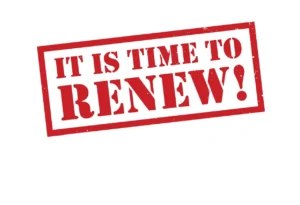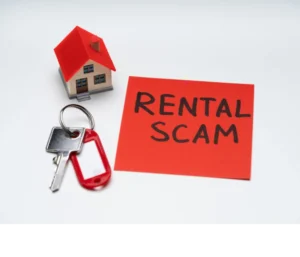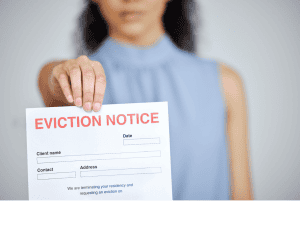
The Value of Property Management Software in 2025
It’s 2025, and many business owners are kicking off the new year by reviewing their budgets.
Rental business owners frequently keep tight budgets, balancing operating expenses like insurance and utilities with unexpected repairs and even long-term capital investments. If this sounds familiar, you might assume property management software is just another expense eating into your profits. But you would be wrong—in fact, you don’t necessarily have to carve out any budget at all for a subscription.
This article will investigate the true value of property management software, including its uses and benefits for landlords of all sizes (financial and otherwise). We’ll also discuss a top property management solution to keep your eye on in 2025.
What is Property Management Software?
Rental property management software is specialized software designed to help landlords and the people who work for them manage rental properties. This includes residential, commercial, and even short-term rental properties.
What can property management software do? Below are few features you’ll find on almost every platform:
- Online rent collection
- Tenant screening
- Digital lease signing
- Financial tracking
- Maintenance management
- Listing syndication
- Tenant communication
Of these, the ability to collect rent online is arguably the most important—it’s the lifeblood of your revenue and must be as dependable as possible. Compared to traditional methods like cash or checks, online rent collection is undoubtedly the more reliable option. There’s immense value to the ability to schedule recurring payments, automatically apply late fees to tenants’ accounts, and connect both parties’ banks to streamline each month’s rent payments. Plus more than half of renters (77%) want to pay rent online, a fact which should be reason alone to embrace it.
Using Software to Streamline and Scale in 2025
Property management software is not just a useful tool—it’s one of the secrets to scaling your rental business.
If you want 2025 to be the year you graduate from one or two doors to a few dozen (or make an already sizable portfolio more efficient), you can’t do it alone. It’s exceedingly difficult to self-manage multiple rental properties without software, even if you have help. You would need to have or hire expertise in a variety of fields:
- Tenant screening – How to detect fraud, verify income and employment, and interpret credit reports without violating fair housing laws.
- Rent collection – Familiarity with processing payments and fees from multiple methods, including online rent payments.
- Accounting and financial tracking – Knowledge of accounting intricacies and the IRS tax code to correctly report your rental income and expenses.
- Maintenance management – Understanding of the scope of various maintenance requests, their timelines and costs, and how to facilitate communication with contractors and tenants.
- Leasing – A sufficient understanding of state and local laws regarding lease agreements.
To be a successful rental business owner, you need a high-level understanding of all these topics – but when it comes to managing the day-to-day operations, you must rely on your talent and tools to keep your properties running efficiently. That’s how you scale a business and yield larger profits as a result.
Rental management software packages all the tools and much of the expertise you’ll need, designed by experts with knowledge in the field, into a tidy dashboard that updates in real time. For example, property management software can:
- Help detect tenant application fraud (via income verification features for prospective tenants)
- Process payments (debit, credit, and ACH transfer) and automatically apply late fees when necessary
- Organize your accounting by integrating with top accounting platforms and importing data from your rental bank accounts
- Track maintenance tickets and facilitate communication between all parties
- Simplify leasing with digital leases and pre-approved templates
Access to these features and others is what make property management software such a critical tool for landlords and property managers. You can think of it like a central command center for your rental business—once it’s set up, it operates mostly independently to keep your units filled, your records accurate, and your tenants happy.
The True Value of Software
So, what’s the value of property management software for the average landlord in 2025?
If you’re like most business owners, you’ll want the answer in terms of dollars. As it turns out, software can save you real dollars throughout the year, in a couple of different ways:
- Property management fees – Property management companies charge landlords 49% of their total monthly rent on average, according to a recent iPropertyManagement survey. This is in addition to flat fees for one-off things like lease renewals, which average $211.92 each. Let’s say you’re a small landlord with just four units rented at $1,600 each. Based on those averages, you could save nearly $7,370 a year by opting not to hire property management services—and this number scales exponentially with each additional unit you rent.
- Automatic late fee enforcement – Around 15% of tenants in the U.S. are currently behind on rent. A late fee applied to each defaulting tenant’s account could add up to substantial extra income for you each month. Plus, it encourages tenants to pay on time before resorting to avoidable outcomes like eviction.
- Faster tenant turnover – Currently, the overall average rent in the U.S. is $1,748 a month. Failing to fill a unit for even one month will cost you at least that much, which is about $60 for every day your unit is left unfilled. If market rent increases, this daily loss grows even bigger. Because digital leases can be signed faster and remotely, software can help you get tenants moved in faster and avoid lost revenue from turnover.
Of course, there are also benefits to software that aren’t as easily quantifiable. For instance, you might avoid expensive eviction fees because your software flagged a fraudulent application for a tenant that you would have otherwise accepted. Or maybe a great tenant chose to renew their lease due to the ease and openness of communication they’ve experienced using the tenant communication feature, saving you on turnover costs.
You could also measure value in terms of hours saved, reduced stress, or simply the ability to travel or work a separate job while keeping an eye on your properties and tenants. However you measure it, property management software is an invaluable asset for the modern landlord.
Top Property Management Software of 2025
Although there are many great software platforms on the market in 2025, one platform stands out for those who want quality without the cost.
Innago is free property management software built to help real estate investors manage their tenants and properties. Innago accommodates portfolios of all sizes and offers unparalleled support for its users, making it one of the best property management software solutions in 2025.
Innago’s property management tools include:
- Online rent collection
- Digital lease signing
- Maintenance management
- Listing syndication
- Tenant screening
- Financial reporting
- A mobile app
- Free forms and templates
- A variety of integrations and APIs
- And more
With top recognition on review sites like Capterra and G2, Innago is an industry leader in property management software. Good software shouldn’t be a strain on your budget, and Innago’s mission to provide landlords with free access to the tools that can define your success makes it a unique player in the 2025 market.
Conclusion
Property management software is no longer a luxury – it’s a necessity for staying a competitive and efficient rental business in 2025. Adopting software is the quickest way to save money, conserve time, and minimize the effort you spend on day-to-day operations of your properties. And the best news? It doesn’t have to compromise your budget for the new year.













 Accessibility
Accessibility